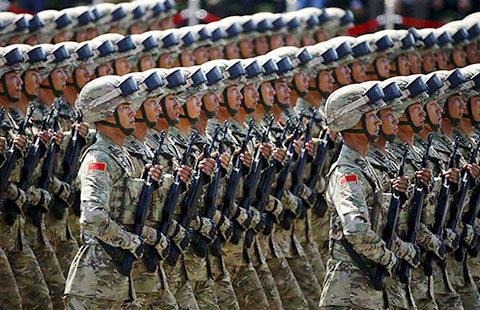Looking ahead: Hopes for 2016
(China Daily) Updated: 2016-01-01 07:479 Alistair Michie, secretary-general of the British East Asia Council and senior adviser to the State Administration for Foreign Experts Affairs
Looking forward into 2016, China has a great opportunity to become the chair of the G20. This means there will be growing international media focus on China leading up to the G20 Summit in Hangzhou in September. China could use this global media attention to explore new and more effective ways of communicating with the world. The reward for such innovation would be much deeper understanding of the reality of China today.
For those with a privilege to travel the world, it is obvious how different cultures communicate in different ways. What works inside China will not attract big foreign audiences. If China wants to win much better understanding, then it should look into great examples of Chinese media, which communicate in a style that optimizes the impact on Western audiences.
10 Wang Mengshu, tunnel and railway expert and member of the Chinese Academy of Engineering
In 2016, China will continue its investment of 600 billion ($92.5 billion) to 800 billion yuan in the railway sector. The most important task is connecting Beijing with more provincial capitals, such as those in Northwest China, including Yinchuan and Lanzhou. Once the network is completed, resources in western China can be transported to the East at lower cost and with less pollution.
We also plan to improve the underground transportation systems in cities, connect subways with the railway system and move public facilities, including hospitals and schools, closer to subway stations. Such planning could ease traffic jams and curb emissions. In the past, we made transportation plans according to the location of major facilities. Now we need to work the other way around."
11 Liu Jianchao, director of the International Cooperation Bureau of the Central Commission for Discipline Inspection
To date, nearly half of the corrupt Chinese officials that have fled the country are still at large in some major destinations, such as the United States, Canada, Australia and New Zealand. It is our priority to nab them, but we face difficulties. All countries should strengthen cooperation in law enforcement.
China and the US have decided to cooperate on some major cases, and we have also started a smooth dialogue with our counterparts in Canada, Australia and New Zealand on hunting down fugitives. With a deepening judicial cooperation, the fugitives' happy days abroad will soon be over.
11 Yang Qiang, secretary of the board of the TAL Education Group
Looking ahead to 2016, I believe online education will experience further development and students will enjoy better, cheaper and more-efficient online learning, as technologies in this area keep improving. More complicated and advanced technologies, such as virtual reality and brainwave technology, will have opportunities to be applied to online education and may impact students' learning patterns in ways that we haven't imagined.
12 Zhou Zhonghe, member of the Chinese Academy of Sciences and director of the Institute of Vertebrate Paleontology and Paleoanthropology
I would expect more interesting discoveries in paleoanthropology in the coming year. In 2015, a number of important fossils were unearthed, such as the 47 teeth excavated in Hunan province that belong to the earliest modern humans in East Asia, and a fossilized skull of Homo erectus found in Anhui province.
In the coming year, more clues about the origins and migration of modern humans will emerge, as careful examinations are carried out on the fossil samples.
In the past seven to eight years, Chinese paleoanthropologists have carried out a number of investigations and excavations that could lead to exciting new discoveries. Technological advancement in recent years, such as DNA extraction from ancient bones, will tell us more interesting stories behind those fossils.
- China to sink billions into new airports
- More high-speed services to be added
- Lunar mission moves a step closer
- Southwest China city tries to help make smog-free meat
- Watchdog issues rare comment on execs' porn prosecution
- Tourism revenue in Tibet's Lhasa to double by 2020
- China overfulfills affordable housing target
- Bumper crops fill reserves
- Awards honor scientists' contributions
- Chinese police seize 470 suspects in transnational telecom fraud







